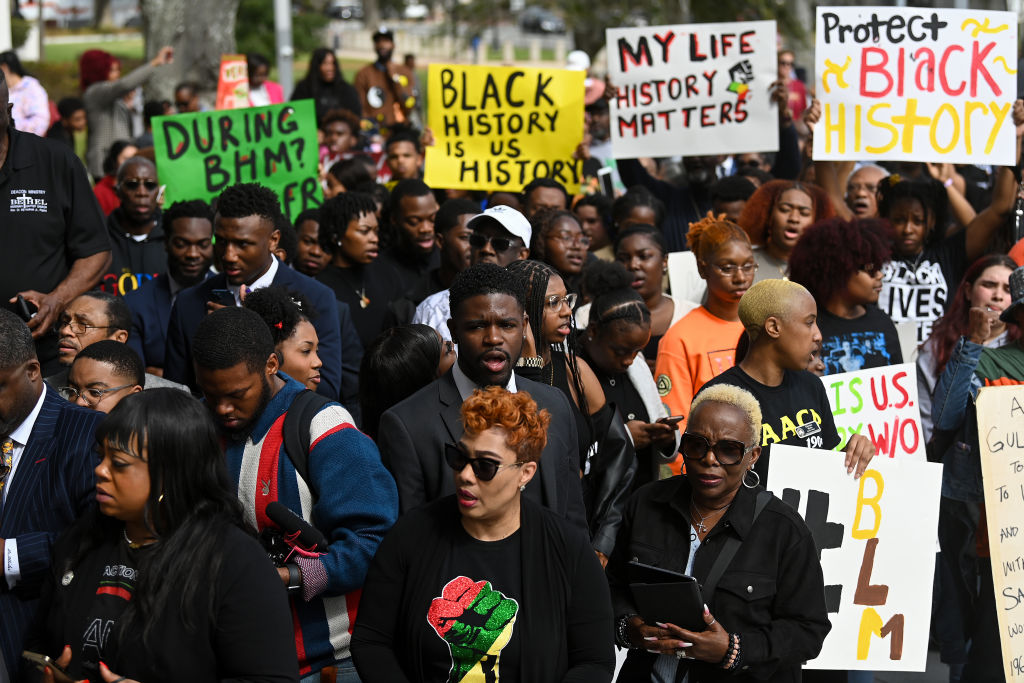
In April 2022, Florida Governor Ron DeSantis signed CS/HB 7: Individual Freedom, also known as the Stop “Wrong to Our Kids and Employees” (WOKE) Act.
The bill affects two parts of life in the Sunshine STate: workplaces and K-20 (upper-level education).
Employers are restricted from discussing race and gender in workplace training unless the material is wholly objective and “without endorsement.”
In the higher education context, the law “authorizes discussion and curricula, in an age-appropriate manner, regarding topics such as sexism, slavery, racial oppression, racial segregation, and racial discrimination. However, the bill specifies that instruction and curricula may not be used to indoctrinate or persuade students to a particular point of view inconsistent with the principles of individual freedom or state academic standards.”
Essentially, it requires that instruction is less racially focused so that there is no racial guilt or discrimination against members of certain ethnicities, even those perceived as “inherently superior.” Additionally, professors who teach outside of the guidelines of this law may face professional repercussions that include the termination of their positions, and schools that violate this law could potentially have their state funding diminished.
However, college professors and students immediately challenged the law’s constitutionality on the grounds of the First Amendment. In November 2022, U.S. District Judge Mark Walker echoed these sentiments when he issued two preliminary injunctions of the law that stopped its enforcement on both the employment and education sides.
In March 2024, the United States Court of Appeals for the 11th Circuit upheld this decision.
The court’s opinion, delivered by the Honorable Britt C. Grant, states, “This law, as Florida concedes, draws its distinctions based on viewpoint — the most pernicious of dividing lines under the First Amendment. However, the state insists that ordinary First Amendment review does not apply because the law restricts conduct, not speech. We cannot agree and reject this latest attempt to control speech by recharacterizing it as conduct.”
“Florida may be exactly right about the nature of its target ideas. Or it may not. Either way, the merits of these views will be decided in the clanging marketplace of ideas rather than a codebook or a courtroom,” it continues.
Proponents who fought against the law’s language on workplace training won a lawsuit in November against Florida for the costly legal battle after the appellate court upheld the injunction. The state of Florida must now pay the plaintiffs $725,000.
While this was a significant win for opponents of the #StopWOKE Act, it largely aided the employment sector. In higher education, the ground is a little more shaky.
Judge Walker’s preliminary injunction that blocked the enforcement of how race-related concepts are discussed in universities still stands. Pernell v. Lamb is an ongoing lawsuit against the law on the grounds of the First and Fourteenth Amendments brought on by LeRoy Pernell, a College of Law professor at Florida A&M University.
Florida A&M University student Stephanie Pierre is a graduating senior in the English department at the College of Social Sciences, Arts and Humanities (CSSAH). As her degree program at her historically Black campus largely pertains to history and African-American literature, avoiding race and gender discussions is next to impossible.
“It’s just borderline racist, you know, because what is the true point of trying to take DEI [diversity, equity, and inclusion] out of employment, out of higher education?” Pierre said. “Essentially what you’re doing is taking out a voice, taking out a culture in [an attempt to] level the playing field when it’s never been level.”
A decision on Pernell v. Lamb has yet to be reached despite an appeals court panel holding a hearing on arguments in June 2024.